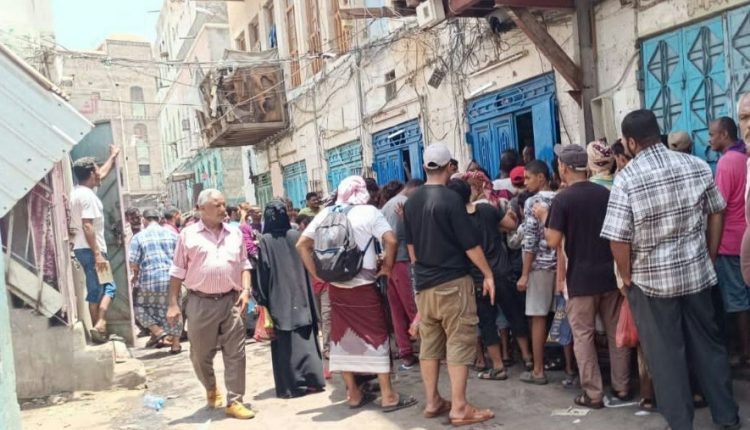ADEN, June 26 (YPA) – Providing three continuous hours of electricity has become a dream for citizens in the coalition-controlled city of Aden, after increased power outages nearly 20 hours per day in the city.
According to local media reports, Ice prices have been reached astronomical levels, forcing citizens to pay a minimum of nearly 3,000 riyals per day to secure their basic needs of cold water. Similar hardship is being experienced in the provinces of Lahj, Abyan, Shabwa, Hadramout, and Mahra, due to the coalition-backed Aden government’s inability to provide fuel to power stations and pay employees’ salaries for the past months.
Additionally, popular protests demanding that the government, based in Ma’ashiq Palace in Aden, have been provided the minimum requirements for a decent life, including electricity and water, and curb the collapse of the currency, have not helped. In fact, over the past two days, the government has increased the price of gasoline, the third increase this June, bringing the price of a 20-liter gallon to nearly 38,000 riyals, which equals $156.60.
For his part, Fadl al-Jaadi, a member of the presidency of the UAE-backed Southern Transitional Council (STC), accused unnamed parties of waging war on citizens’ livelihoods, referring to Saudi Arabia through the head of the Presidential Leadership Council, Rashad al-Alimi.
Al-Jaadi stated that there have pathetic attempts to humiliate people by depriving them of their most basic rights, adding that not paying salaries or overlooking the deteriorating currency and rising prices will not subjugate people or break their will.
Citizens in Aden and other provinces, which coalition is taking over, are suffering a catastrophic deterioration in living conditions and rising prices of basic commodities due to the local currency losing its purchasing power in the market.
Parties loyal to Saudi Arabia and the UAE in the government and the “Leadership Council” have been trading accusations regarding the economic failure, while ordinary citizens paying the heaviest price in the war on services and starvation raging in Aden and the rest of the southern provinces.
Economic experts attributed the coalition-affiliated Aden government’s printing of 5.32 trillion Yemeni riyals without cash cover following the transfer of the Central Bank’s management from Sanaa to Aden at the end of 2016 to the most prominent catastrophic collapse that has afflicted the national economy. This collapse have been occurred despite the Sanaa-based government’s failure to heed warnings about the dangers of printing illegal currency.
AA


